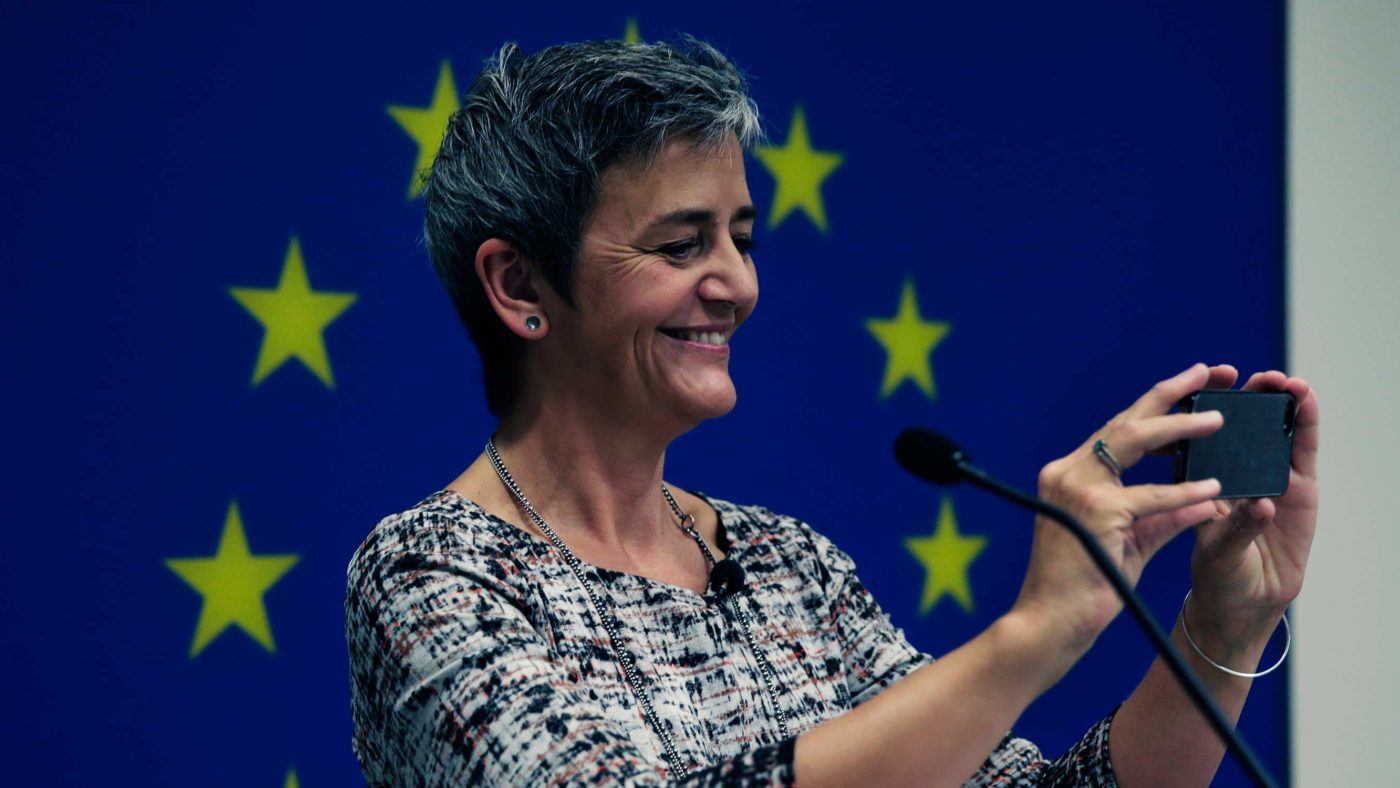A country that was the poorest European nation just four decades ago is today one of the richest. Ireland transformed itself into one of the most desirable business locations in the world with the help of the hard work of its citizens, a cooperative environment that focused on creating value with businesses, and the intelligent use of tax competition.
Nonetheless, the European Commission recently announced that Ireland’s competitive tax structure is illegal. According to the Commission, Apple had benefited from unfair tax treatment in Ireland from 2003 until 2014. These so-called tax benefits have been calculated at €13 billion, and the Commission says that this money should now be recovered by the Irish revenue services.
The ruling is extremely dangerous. Such overreach by the EU’s antitrust regulator puts Ireland’s national sovereignty—and, indeed, the sovereignty of all EU nations—under threat.
According to Greek and Roman mythology, Saturn devoured his own sons. The Commission is about to do something similar to European nations by taking away their opportunity to succeed economically. Needless to say, threatening foreign direct investment in Ireland risks returning the country to the stagnation and poverty of old.
That’s why we, as concerned citizens of Europe, are urging the president of the European Commission, Jean Claude Juncker, to change the course of action immediately.
The Apple decision has dramatically raised the level of tax uncertainty for all those companies operating in the European Union, and will inevitably have a significant, negative impact on investment. Jobs and productivity will be the victims. This problem is exacerbated because the Commission has made their decision retroactive: who knows who will be hit next, and for how much.
Furthermore, the rule of law will be severely damaged if the Commission’s decision is upheld. Neither Apple nor Ireland believe that any tax is due. Yet the unelected EU still intends to force through a tax payment.
We feel stongly that the European Union and Commission are simply serving the interests of those countries which dislike Ireland’s tax policies. The EU is behaving like a cartel of governments with high taxes. It is pushing its tax harmonisation agenda in a particularly undemocratic way and if continues, the results could be catastrophic. After the Brexit vote, and such uncertainty in Europe, these stringent impositions will lead only to a Pyrrhic victory.
To avoid economic calamity, therefore, we propose the following:
1) The European Commission should deal swiftly with Ireland’s appeal and overturn this ruling as soon as possible.
2) Tax policies should be underpinned by a pro-growth approach. Risky and illegal measures such as the imposition of retroactive taxes will cause capital flight and a lack of investment. What Europe needs is smart, simple, and low taxation to attract capital and talent, as seen in Ireland.
3) The tax harmonisation agenda is unsustainable and must be immediately abandoned. Instead of paving the road to stagnation with these policies, the Commission should embrace tax competition. National jurisdictions should be left alone to compete with each other and try different systems.
If you share our belief that the European Commission should overturn the ruling, abandon their tax harmonization policy, and respect the national sovereignty of all European nations, please join the thousands who have already signed our open letter to Mr Juncker.


